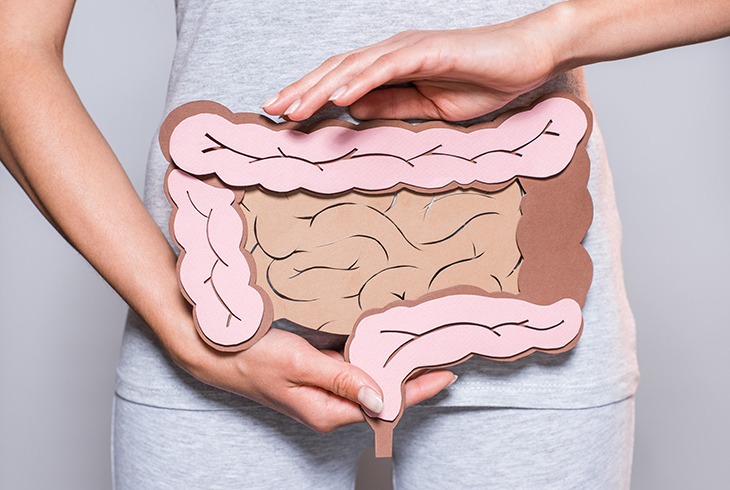Frightening Facts About Colon Cancer (And How to Prevent It!)
While lung cancer remains the top cancer killer for both men and women, colon cancer comes in a close second. More than 130,000 Americans are diagnosed annually with colon cancer, and more than 55,000 die from this deadly cancer.
The key to surviving colon cancer is early detection, which is why screenings are crucial. Colon cancer develops very slowly over a 10-12 year period and symptoms do not appear until the cancer is advanced. With early detection and while the tumors are still within the bowel, there is an 80-90% survival rate; however, that significantly decreases to a mere 5% survival rate if the tumors spread to the liver (common metastases with colon cancer).
Colon cancer is somewhat preventable by maintaining a healthy colon, and by maintaining a healthy colon, you will be promoting optimum health and lowering your risk of developing a number of deadly diseases and health conditions.
Causes and Risk Factors of Colon Cancer
Family history raises the risk of colon cancer and in some cases, there is a particular genetic defect associated with colon cancer. A history of colorectal polyps, inflammatory bowel disease or other cancers such as ovarian or uterine cancer also raise the risk of developing colon cancer. Genetics and pre-existing conditions aside, there are many controllable risk factors are often the cause.
Controllable Risk Factors for a Healthy Colon:
- High fat diet (saturated fat and trans fat)
- Excessive consumption of fried foods
- Excessive alcohol consumption
- Excessive consumption of overcooked white and red meat
- Excessive consumption of charbroiled, wood-burned or smoked foods
- Obesity
- Smoking
- Sedentary lifestyle
- Chronic constipation or diarrhea (sometimes difficult to control depending on condition)
Signs and Symptoms of Colon Cancer
As mentioned, signs and symptoms of colon cancer do not appear until the cancer is advanced, so again, early detection is important.
- Rectal bleeding
- Blood in the stool
- Changes in bowel habits including persistent diarrhea, constipation or gas
- Persistent abdominal pain or bloating
- Anemia
- Significant weight loss
- Unusual paleness or fatigue
- Ulcerative colitis
Detection and Diagnosis
For those over 40, annual rectal exams can be used to screen for colon cancer. If blood is found on probe, further testing will be ordered. After age 50 or if blood is found on rectal probe, one or more of the following exams may be ordered:
- Fecal occult blood test with flexible sigmoidoscopy
- Colonoscopy
- Double contrast barium enema or colon x-ray
- Virtual colonoscopy
Preventing Colon Cancer
As mentioned, genetics does play a role in many cases of colon cancer; however, there is much you can do to lower your risk. Optimizing your colon health to prevent colon cancer will also have other amazing benefits such as weight loss.
The typical American diet is laden in fat and sugar and very low in fiber and phytochemicals. This is a recipe for colon cancer and many other diseases or poor health conditions. We are also a very sedentary society with most Americans getting far less than the recommended 30-60 minutes of physical activity per day. In fact, a recent study showed that sitting for prolonged periods may increase your chances of developing colon cancer. The link is likely that sitting for a long time promotes a slow, sluggish digestive system, which can result in chronic constipation, which of course is a risk factor for colon cancer.
To lower your risk factors of developing colon cancer, you should make the following dietary and lifestyle changes:
- Ditch the overly processed foods
- Switch to natural foods (whole grains, vegetables, fruits, lean animal protein, nonfat dairy, good fats)
- Eat plenty of insoluble and soluble fiber food sources (If you follow the above two suggestions, this will be easy!)
- Up your fiber intake slowly. Too much fiber too soon will be tough on your digestive system.
- Try a colon cleanse product to clear out that colon and detox your system
- Use an anti-parasite formula with the colon cleanse.
- Follow-up the cleanse with a probiotic to restore good gut bacteria.
- Become more active. Even if your job is sedentary, get up and move around on the hour.
- If colon cancer runs in your family, limit your consumption of alcohol and foods cooked outdoors.
And remember, early detection is key to surviving colon cancer. If you are over 40, you should make sure colon cancer screenings are included in your annual healthcare check-up!
For more information on maintaining a health colon, watch this important video.
Sources: Mayo Clinic, National Institute of Health, American Cancer Society

